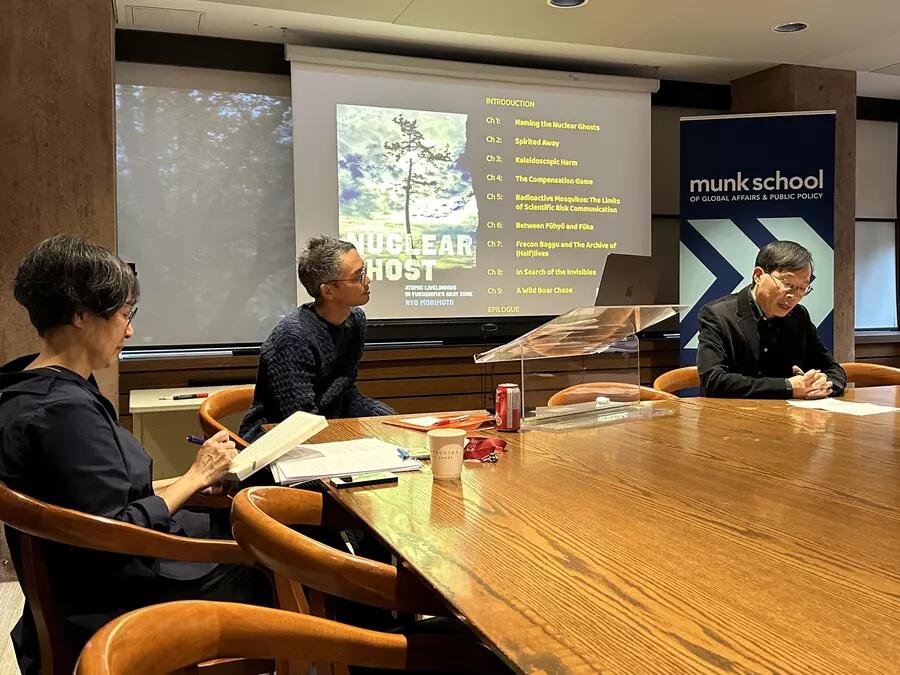
Event Report: Nuclear Ghost: Atomic Livelihoods in Fukushima’s Grey Zone
On December 1st, 2023, Ryo Morimoto, assistant professor of Anthropology and the Richard Stockton Bicentennial Preceptor at Princeton University, delivered a presentation on the effects of the 2011 Fukushima nuclear disaster on communities in coastal Fukushima.
Professor Morimoto began by characterizing atomic livelihood. He analysed how individuals live and die, and what they did and remember in the fallout environment through the applied model of radiation contamination versus containment.
Then, Professor Morimoto described his ethnographic work in the radiation zone. He visited a local clinic to interview people about whether they would want to go back after the evacuation order was revoked, and asked why people were discouraged from discussing nuclear effects in human bodies. He told the story of a Japanese artist symbolizing contamination through black trash bags, to represent how the site still had to be cleaned despite the difficulty for many to face the events of the disaster.
Professor Morimoto progressed by evaluating how broader Japanese society had encountered the “nuclear ghost.” He interviewed two Fukushima residents who revealed that they lost some of their friends after the disaster due to differences in radiation treatments. Professor Morimoto also portrayed the decontamination paradox as well. In Fukushima, decontamination was conducted in fields and residential areas. Although the government promised a low contamination, there was a paradox in which there were additional exposures.
Finally, Professor Morimoto concluded his findings on the “ghost” of Minamisoma. Before his ethnographic research, he thought the invisible ghost was radiation itself. However, he later believed the ghost to be the experience of living with radiation. Government data and reports only showed quantifiable scientific research, but not the lived experiences of those encountering post-fallout challenges.
Following the panel discussion, there was a lively question and answer session. The audience was mainly concerned about how the politics of representation influenced the interpretation of radiation and if any international governmental bodies were mobilized in Minamisoma’s contamination. Other audience members asked questions about divisive public opinion on banning nuclear power plants, and the act of continued living as a type of activism.
We would like to thank Professor Morimoto for his insights, as well as the audience that was in attendance for an engaged Q&A session. The event was jointly organized by the Dr. David Chu Program in Asia Pacific Studies, Asian Institute, and the Centre for the Study of Global Japan.

